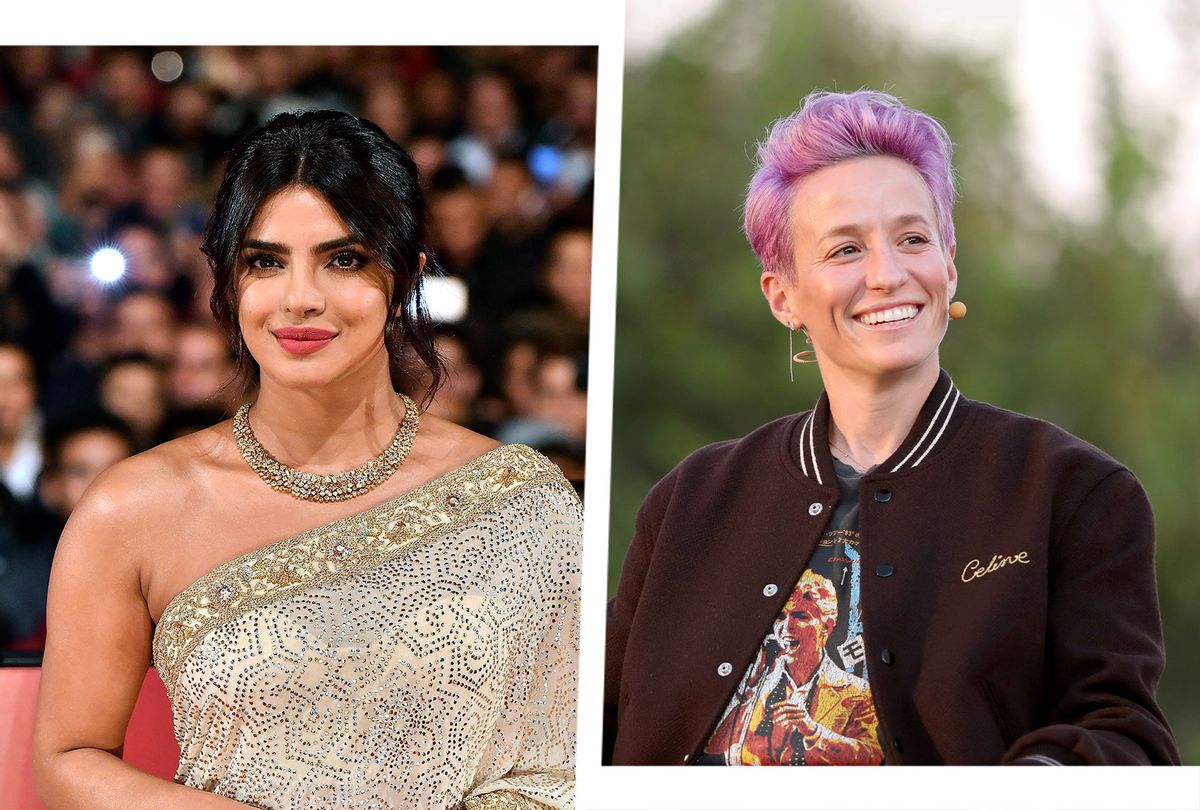As frequent, self-appointed cultural critics, if there's one thing men on the internet can't stand, it's women they're not attracted to being visible in any way. The latest object of their outrage is Victoria's Secret.
Once catered entirely to straight, male wish fulfillment, the lingerie company announced this week that it would switch out its famous mostly white, cisgender, size 0 models for new spokespeople, who will include U.S. women's soccer icon Megan Rapinoe, Indian actor Priyanka Chopra Jonas, Chinese American skier and to-be Olympian Eileen Gu, size 14 model and advocate Paloma Essler, and transgender model Valentina Sampaio.
"When the world was changing, we were too slow to respond," Martin Waters, CEO of Victoria's Secret, told the New York Times. "We needed to stop being about what men want and to be about what women want."
To say Victoria's Secret was "slow to respond" to cultural changes is putting it lightly. The brand has been widely and justifiably criticized for years now for its transphobia and body-shaming, not to mention its uncomfortable undergarments and numerous sweatshop labor controversies.
Rapinoe, a vocal, queer feminist and advocate, is well aware of the company's history, and didn't mince words in her statement to the Times, describing Victoria's Secret as once being "patriarchal, sexist, viewing not just what it meant to be sexy but what the clothes were trying to accomplish through a male lens and through what men desired."
"And it was very much marketed toward younger women," she added. That message, Rapinoe told the paper, was "really harmful."
In addition to the brand's new spokesmodels, the Times reports it will also create more size-inclusive products and advertising, a new maternity wear line, and even a podcast with the Collective.
Conservative outrage has predictably ensued online, with one talk show host suggesting the brand will "destroy themselves," and the usual suspects and male Twitter trolls threatening to no longer buy Victoria's Secret underwear for their very real girlfriends. Of course, if the company's embarrassingly long overdue rebrand fails, it won't be because men on the internet are angry at being shown women they claim they aren't attracted to. It will be because, in the time it took Victoria's Secret to realize catering to a more expansive market of diverse women and diverse bodies is actually highly profitable, Rihanna's Savage x Fenty and other women of color-led brands beat them to it.
In the years, perhaps decades, that Victoria's Secret spent peddling one, singular standard of beauty and attractiveness — and, to be clear, a distinctly racist, sizeist and boring standard — other brands, notably not owned by white men, knew this wasn't what actual women wanted. All women and certainly young women haven't been shopping at Victoria's Secret for years, exploring the far better and more affordable options available to them, and there's no real reason for them to stop, now. No matter what Victoria's Secret does at this point, the damage is done. The toxic beauty standards, the defenses of excluding trans models from fashion shows because they don't exemplify a patriarchal "fantasy" — our collective memory isn't so short.
Ultimately, as the male executives behind Victoria's Secret are beginning to discover, the nagging problem with creating brands for women is that doing so requires you to make products that actual women want to buy for themselves. For all the male internet trolls claiming they'll no longer be patronizing the brand, their largely hypothetical purchases never really mattered, in the first place. Believe it or not, most women buy their own underwear for themselves, and for that matter, know what they want for themselves — and that hasn't been Victoria's Secret for a long time.



Shares